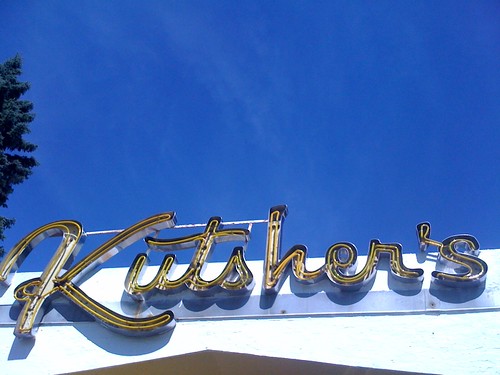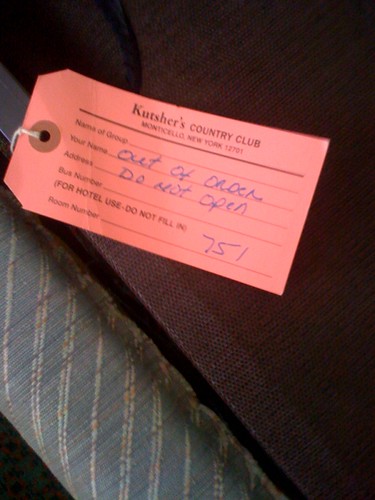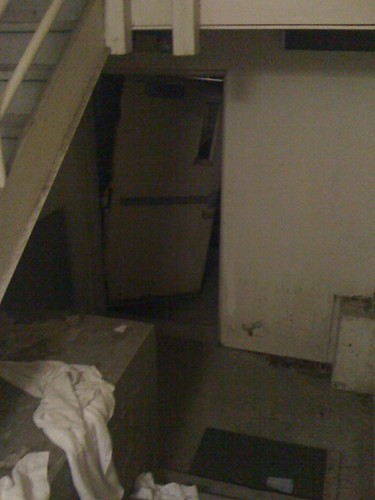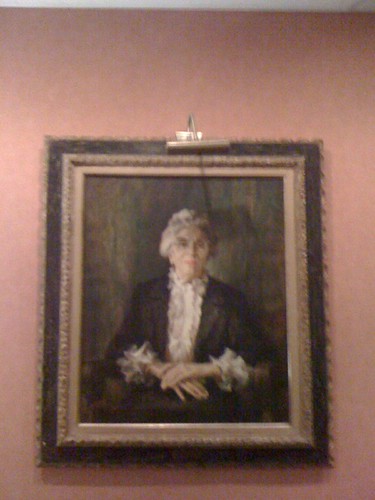"run rudolph run," 12/14/71, hill auditorium, ann arbor, MI
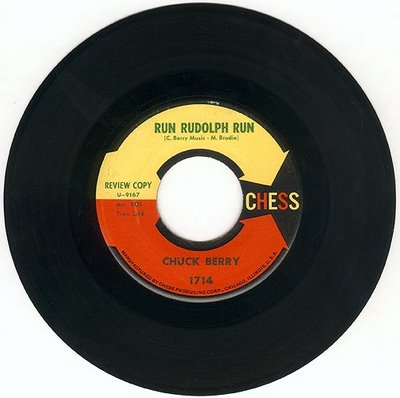
Download here. [MP3]
The Dead played "Run Rudolph Run" seven times between December 4th and 15th, 1971. Pigpen sang. The tune was a #69 hit for Chuck Berry in 1958, written by Johnny Marks and Marvin Brodie. Unquestionably the best Dead version is the second-to-last, from December 14th at the Hill Auditorium in Ann Arbor. They played it twice in Chuck Berry's hometown of St. Louis on December 9th and 10th, and it's too bad not one of those, but the first night in Ann Arbor has the best mix of any of them. Keith Godchaux's strident Johnnie Johnson-style piano is full and rich, like the familiar warm balance of Europe '72, Garcia's lines darting around it. Besides the following night, where he's too loud, Godchaux is buried in most of the other recordings, Garcia and Weir's guitars clanging against each other.
It's a showcase for Pigpen, returning to the band after sitting out the fall tour, the first sign of weakening for the 26-year old alcoholic, who would die less than two years later. At times on the December east coast run, 11 shows from Boston to Ann Arbor, Pig is spotty. In Boston, the band pulled out his show-stopping "Turn On Your Lovelight," and he faltered, unable to martial the gang into the weirdly psych-funk nooks they were often able to improvise behind semi-improvised patter about "box back knitties and great big noble thighs," and they only revisited it one other time on the trip.
But by the end of the run, he seems almost back to form, though the big closers wouldn't return with regularity until the band shuffled off to New York and then Europe the next spring. One lesson of my Dead listening project--revisiting every show close to its 40th anniversary, #deadfreaksunite, etc.--has been a constant reevaluation of the Dead as a working, aggressively evolving band, often marked by the unrelenting, constant expansion of their songbook. Most lately, this involved an appreciation of Pigpen's still very active role in '71 and '72. Even for Deadheads, Pig is sometimes easy to write off in these later years, so often relegated to un-mic'ed sidestage congas.
While he didn't exactly crank out tunes like Garcia and Weir, he had two new numbers to do for the December run, "Run Rudolph Run" and a new original, "Mr. Charlie," which would go along fine with "Empty Pages," introduced earlier in the year, had he not already abandoned that. Early '72 would see two more Pig tunes go into rotation, "Chinatown Shuffle" (whose pick-up would get jacked for "U.S. Blues") and the lost masterpiece "The Stranger (Two Souls in Communion)." Even after he left the road following the Europe '72 tour, he continued to write, producing a set of home demos, which has circulated as Bring Me My Shotgun.
With its "Love & Theft"-like cadences on half-sensical tumbles about some heretofore unknown reindeer named Randolph (?!) and archaic constructions like "girl-child" and "boy-child," it's sort of mystifying that avowed Chuck Berry freak Bob Dylan didn't record "Run Rudolph Run" for his Christmas in the Heart. But it's a nice little novelty from the Dead's brief two-keyboard lineup, where Pigpen and Godchaux got a nice Hudson/Manuel-like B3/piano blend on some of the recordings from those tours. Though Pig doesn't play organ here, Godchaux's presence gives him the chance to belt over straight-up boogie-woogie piano, a rare pleasure in itself only possible during these few tours.
All of which totally ignores the song's holidayness, which really has no narrative and is, in an admirably teen-pop way, more about describing the apparent giddiness of the Christmas season in the post-War years. "Shopping is a feeling," David Byrne said later in True Stories, and there's maybe some of that in here (infused with holiday spirit, no doubt), with the subtle '50s consumerism behind lyrics like "all I want for Christmas is a rock & roll electric guitar" and the girl-child's wish for "a little baby doll that can cry, scream, and wet" (plus perfectly period automotive dreams about Santa speeding down a freeway). Not that Pigpen was signifyin' or anything. He was--and thanks to the perpetual present tense of the recording is--just singing. The Dead may've been hippies, but by late 1971, they were mostly just a rock band.
"Run Rudolph Run"--at least the fifth or sixth Berry tune in rotation--is Pig in his element, and a vibrant little tick in Dead history. But it's something maybe even more unique than that. In the Dead's massive unofficial catalogue, it's one of the very few versions of anything I'd happily call "definitive" with any measure of confidence. And, hey, that's something to feel good about this holiday season.
